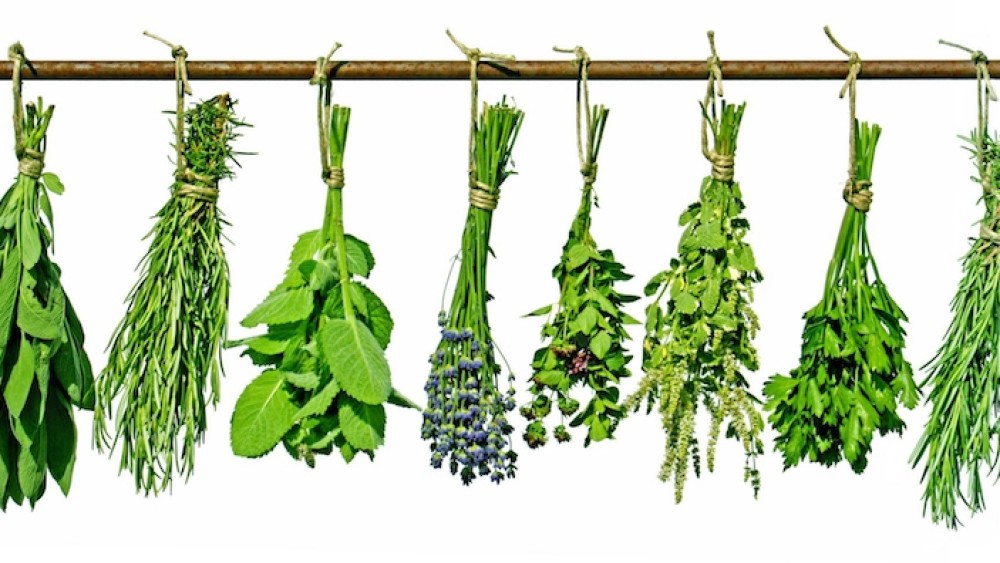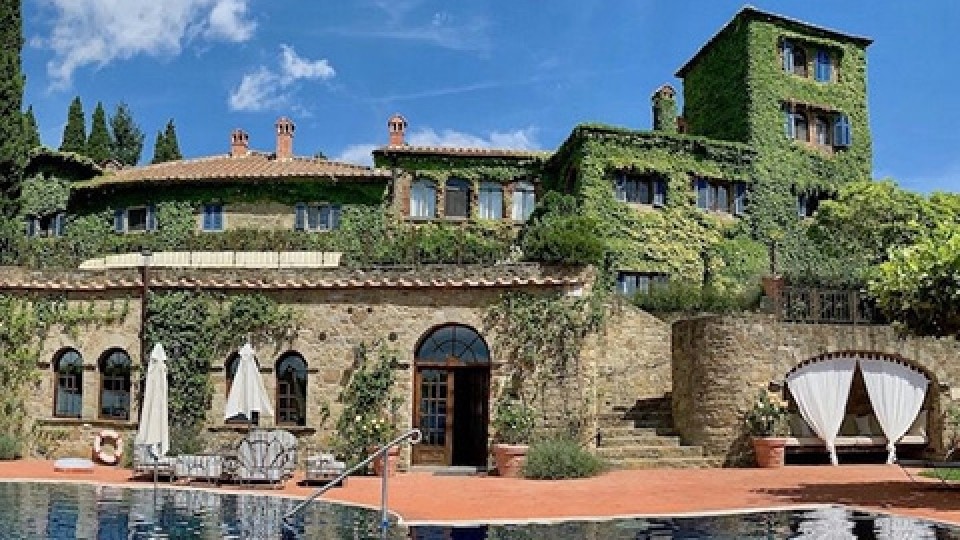Herbs create the famous aromas we all love about Italian food
July 4, 2016

Herbs create the famous aromas we all love about Italian food
The herbs all have their own unique partners in the Italian cuisine. Read about these great marriages but also about the useful medicinal properties they have.
The Italian cuisine is largely constituted by its aromas, which in turn are made of classic combinations of herbs and spices. Can you really imagine a pizza without the pungent smell of oregano? Or basil? These are touches that often you don’t find in pizzas and other Italian dishes cooked abroad, but they are one of the essential differences that turn the food of the peninsula into a sensorial dreamland. And this is just one small thing herbs do for the Italians. In fact, the art of recognizing useful and edible herbs is ancient, dating back perhaps to prehistoric times. The Greeks and the Romans brought it to its apotheosis and doctors like Asclepius, Hippocrates and Galen turned this knowledge into one of their most powerful weapons against all kinds of diseases.
Throughout the centuries, this tradition has entered the Italian popular knowledge. As a consequence, the Italian cuisine has been increasingly enriched by curative aromas, which provide unique flavours and are the cornerstone of the longevity associated with the Mediterranean diet. Following the advice and wisdom of our wonderful chefs at Tuscookany – Cooking vacations in Tuscany , we now look at some of the most commonly used herbs in the Italian gastronomy, starting precisely from the famous pizza ally: the oregano.
Oregano
Fresh and dried oregano taste quite differently. The fresh herb is delicate and blends in well with a salad. However, when the oregano dries up, its flavour multiplies, strengthening its stinging notes and becoming a great companion not only for pizzas but also for tomato-based red sauces. Sprinkle it on your mozzarella, trust me: it is amazing. And if its deliciousness is not enough, it also has antiseptic, analgesic, expectorant and digestive properties.
Basil
One of the most famous and beloved herbs of the Italian culinary landscape, basil is known as a protagonist in legendary recipes such as pizza, caprese and pesto. It is absolutely divine when combined with olive oil and garlic, and it is beyond this world when it meets tomatoes in every form, either fresh or cooked. The name comes from the Greek basilikohn, which means “royal”: a perfect label for a noble herb symbol of hospitality and love. Its antibacterial, antioxidant and anti-inflammatory properties make it one of the healthiest herbs on the planet with plenty of nutrients that improve cardiovascular and digestive health, and protect the structures of cells and chromosomes. Its aroma is welcoming and fresh, with a hint of minty notes. In fact, basil and peppermint are related: did you know?
Parsley
In Italy, when referring to something that is everywhere, or a person you find in all the places you go, it is said: it/he is like parsley. The reason is because this herb is an inevitable protagonist in almost all Italian recipes. There are sauces made exclusively of parsley, like the Gremola in Lombardy and the Tuscan green sauce. It is great with mushrooms and with all the trifolature, and you can add it raw on salads, fish and cheese. And this herb is a real medicine, a life-saver. It is able to promote iron absorption, it is diuretic, laxative and it fights against cellulite, improving the circulation and promoting a healthy digestion. Plus, it is rich in vitamins and can be used as a perfect detox potion.
Rosemary
This rustic plant can grow even on rocks and in dry areas, and it is not afraid of the cold. Consequently, it grows easily around the beautiful Italian peninsula. Try it to marinate meat and veggies. It is perfect with potatoes and other vegetables cooked in the oven and with the famous abbacchio of Lazio, and it is used in many regional recipes. It is both antioxidant and anti-inflammatory, and it is helpful to fight back against depression, because it is both a tonic and a stimulant. Italian grandmothers used to combine it with water to be used in the last rinse of their hair, giving it an awesome sparkle.
Thyme
It is so good it is actually sacred: the ancient Greeks used thyme as incense in their sacred temples. A medieval symbol of bravery and courage with an intense aroma, the herb has been known for centuries for its medicinal properties. It has antioxidant, antibacterial and antimicrobial properties, and studies suggest it can even decontaminate contaminated food. It was also used as an embalming agent during the mummification of the Egyptian pharaohs: talking about a powerful ingredient! A wonderful add-on to many pasta sauce recipes, fresh thyme is a triumph when combined with fish, beans and seasonal soups. You should also try it in your Italian omelettes.
Sage
An herb that in many countries can’t find its place, but that in Italy is an absolute queen. It is used with fish and meat, and many Italians adore it in soups and sprinkled on a wide variety if vegetables. It is perfect for the ravioli together with butter. And a marriage in heaven together with white beans and garlic. To give you a sense of how much Italians love it, in Rome sage leaves are fried and eaten as healthy chips: can you imagine? Its taste and aroma are intense, powerful and dominant, and this is the reason why you can’t really combine it with other herbs: it would wipe out their flavour. This herb also has amazing properties: it is antibacterial, antispasmodic and digestive, and improves the functioning of the central nervous system. It even helps fighting excessive sweating and rheumatism (when added to the water used for a bath). Another little Italian secret: rub sage leaves on your teeth; you will destroy all traces of bad breath and find yourself with white teeth and a beautiful smile.
Please share your thoughts about Italian herbs? We’d love to hear from you in the comments below, or share our post with your friends?

Interested in our cooking courses at one of our Tuscan villas?
Do you want to enjoy our Tuscany cooking classes with plenty of time to explore in your free time, all while staying in an amazing villa?
Reviews
How our guests experienced the Tuscookany courses
Reviews from our former guests made about their visit to Tuscookany on TripAdvisor, facebook, Twitter, Google, Chow and Yelp.





